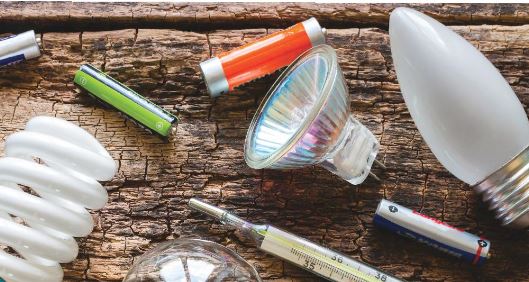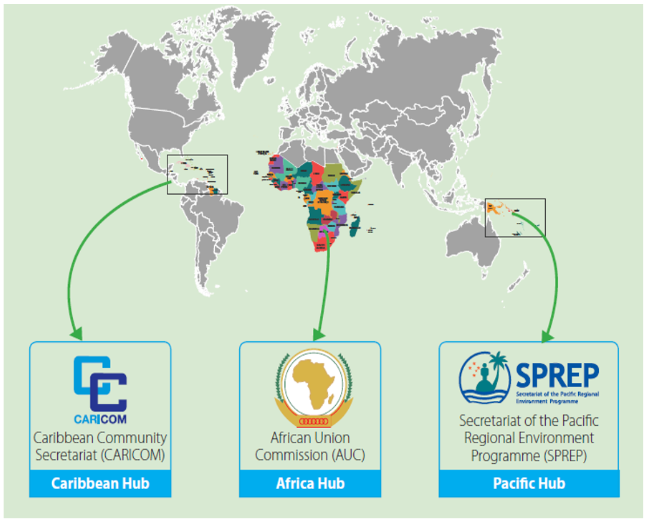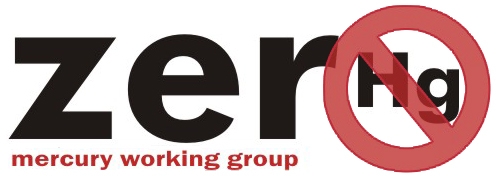
EEB/ZMWG contribution to the ACP MEAs 3 programme
The ACP MEAs programme is a joint partnership between the European Union, the Organization of African, Caribbean and Pacific States, UN Environment Programme and the Food and Agriculture Organization of the United Nations. The programme aims to build capacity in 79 countries in Africa, Caribbean, and the Pacific (ACP) to support them in fulfilling their obligations as parties to Multilateral Environmental Agreements (MEAs), to address the environmental challenges they face and to reap the benefits of improved environmental governance at national and regional levels.
Since its inception in 2009, the programme is continuing support to ACP countries and is now in its third phase. Phase 1 aimed to mitigate the adverse effects of climate change, loss of biodiversity, drought, land degradation, chemicals, hazardous waste and other threats to the environment. Phase 2 built on the experiences, lessons learned, and achievements gained from the initial phase, to further enhance the capacity of the ACP countries on two clusters of MEAs (Biodiversity and chemicals and waste management).
The programme will also aim to mobilise non-Party countries to join existing treaties and begin the implementation process. The third phase of the ACP MEAs programme will deepen the work that has been done by regional institutions and accompany them further in providing the adequate tools and knowledge to countries. Furthermore, the programme is expected to contribute to the achievement of following SDGs.
In the current and third phase (ACP MEAs 3), the programme focuses on three objectives, namely: (i) Improved enforcement of and compliance with Multilateral Environmental Agreements related to biodiversity (CBD, CITES, CMS) and chemicals and waste (Basel, Rotterdam, Stockholm and Minamata), (ii) Improved ACP countries capacities for the management of coasts and oceans in line with the related regional seas conventions, and (iii) Enhanced mainstreaming of biodiversity and of the sound management of chemicals and waste in agriculture in ACP countries in line with related MEAs. FAO focuses on implementation of actions related to the third objective.
The global relevance of the ACP MEAs Programme is reflected in its alignment with the Sustainable Development Goals (SDGs), covering a wide range of targets under SDG 1 (No Poverty), SDG 2 (Zero Hunger), SDG 3 (Good Health and Well-Being), SDG 6 (Clean Water and Sanitation), SDG 12 (Responsible Consumption and Production), SDG 13 (Climate Action), SDG 14 (Life Below Water), SDG 15 (Life on Land), SDG 16 (Peace, Justice and Strong Institutions), SDG 17 (Partnerships for the Goals).

The programme partners, currently, include the African Union Commission (AUC), the Caribbean community Secretariat (CARICOM), the Secretariat of the Pacific Regional Environment Programme (SPREP), the European Environmental Bureau (EEB), Abidjan Convention Secretariat, Nairobi Convention Secretariat, Cartagena Convention Secretariat, Noumea Convention Secretariat, Bamako Convention, BRS Convention Secretariat, Minamata Convention Secretariat, CBD Secretariat, CITES Secretariat and the Secretariat to CMS.

The European Environmental Bureau (EEB), in collaboration with the Zero Mercury Working Group (ZMWG), will support the implementation of specific objective 1 and in particular the EEB’s work will focus on:
- Formulation of specific strategies in selected ACP countries for addressing the mercury-added products phase-out provisions of the Minamata Convention;
- Technical assistance to selected countries contributing to the development of NAPs for reducing mercury in Artisanal and Small-Scale Gold Mining (ASGM) as per the Minamata Convention;

The mercury-added product phase out and ASGM initiatives created under this Programme will enhance the ability of the selected ACP countries to work toward increasing ratification and implementation of the Minamata Convention.
In addition, the EEB/ZMWG will support the regions on mercury related activities as those are defined by the regions in the logframe, including: assisting in relevant workshops to improve the capacity of negotiation and effectiveness of the participation to the COPs, waste management related trainings, interim storage and disposal of mercury added products. Also it will facilitate the dissemination of results during regional/ international processes and provide support to the region for development of relevant awareness raising materials.

Nowadays, EEB/ZMWG has established contact with BCRC Caribbean for information and guidance on the region’s situations. We also provided the CARICOM Secretariat with feedback on the importance of planning for the environmentally sound disposal of collected mercury-added product discards while commenting on the Training Action Plan drafted by CARICOM’s consultant in May.
In the Caribbean, three Memorandum of Understanding have been signed between ZMWG/EEB and the governments of Trinidad and Tobago, St Kitts and Nevis and Antigua and Barbuda to formalize a collaboration leading to phasing out mercury added products as required by Article 4 of the Minamata Convention on Mercury.
In Africa, the EEB/ZMWG is building upon existing work, to contribute to the adoption and the enforcement of laws and regulations, in line with the Article 4 of the Minamata Convention. To this end, a collaboration agreement has been signed with the Center for Environmental Justice and Development (CEJAD) in Kenya focusing on
the enforcement work on ferreting out illegal mercury-added skin lightening products. Discussions are also ongoing to clarify the scope of work in Nigeria.
UPDATES
Memorandums of Understanding (MoU) have been signed with the Governments of Antigua and Barbuda (ATG) and St Kitt and Nevis (SKN) as well as Trinidad and Tobago (TTO) to collaborate in developing strategies towards phasing out mercury added products listed in Article 4 of the Minamata Convention.
- The areas or work for the three countries include the following:
- Developing a roadmap for phasing out mercury-added products
- Developing a market study of mercury-free alternatives
- Assessing/focusing institutional capacity
- Developing a Mercury-free product procurement strategy
- Developing a pilot project plan for a single stream product management pilot project
- Supporting the National Implementation Plan as related to MAPs
- All three countries have collected information and drafted their respective roadmaps towards phasing out mercury added products listed in Article 4 of the Minamata Convention with EEB/ZMWG support.
- After relevant surveys were carried out, mercury free procurement policies on lighting and on measuring devices including dental amalgam have been drafted by the EEB/ZMWG, revised by the three governments and are currently being under discussion and about to be finalized.
- The study looking at the TTO’s capacity to transition to mercury free alternatives replacing mercury added products has been completed. Data has been collected for ATG and SKN and the respective studies have been completed and are now under revision.
- The two ASGM projects in Uganda and Sierra Leone, EEB/ZMWG have been completed successfully. The EEB/ZMWG visited the project in Uganda in September 2022 and also participated in two international conferences one on ASGM and one on Health related issues.
- The work strengthening enforcement on phasing out mercury added products in Africa continues with the renewal of the contracts with our partners in Kenya and Nigeria. The projects focus in particular on skin lightening creams.
- The EEB/ZMWG participated in the first face to face Project Steering Group meeting in Brussels, in October 2022.
- Cooperation with CARICOM and the BCRC Caribbean continues towards establishing synergies with their respective projects for better results.
- The close and fruitful cooperation with CARICOM led to the organisation of the Regional Conference on Mercury in the Caribbean entitled "Phasing out mercury added products in the Caribbean: Engagement, Steps and Tools towards implementing the Minamata Convention on Mercury". The Conference has been held in June 2023 in Trinidad and Tobago and gathered representatives of 14 Countries (12 in persons and 2 online). More details can be found here: 2023 Report of the Regional Conference.
ACP MEAs Launches Policy Paper focusing on Building Back Better
Please find here the first in a series of policy papers from the ACP MEAs 3 Programme focusing on Building Back Better. Leads from the ongoing programme will be used to focus on implementation.
ACP MEAs' information tools
UNEP has developed two regular tools to inform the project partners as well as interested readers about the progress of the project:
- a quarterly newsletter with regional focus
- a monthly digest that provides a collation of key information on issues related to the project.
Both these tools can be found here.
Toolbox towards phasing-out mercury-added products
Tools created under this project
ZMWG checklist to phase out mercury-added products (revised December 2023):
Market Studies on the availability of mercury-free alternatives (2023):
Model questionnaires in view of developing the market studies (2023):
- Dental survey
- Electrical Switches-Relays
- Lighting - Retailers
- Lighting – Users
- Medical measuring devices
- Mercurochrome
Model mercury free procurement policies(2023):

